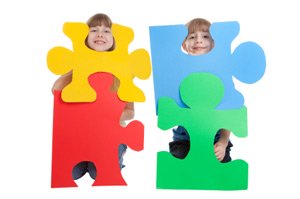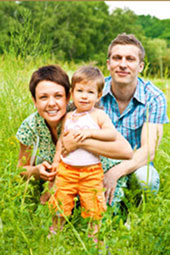|
Asperger Syndrome Behavior - What To Look ForTypical Asperger syndrome behavior -in its more severe form- is seen as a result of a developmental disorder, although many people have traits of that nature.  It has recently been accepted as a syndrome, while to others it is just another variety of being human. Aspergers can be recognized by the specific ways a person uses their common human skills, such as social interaction, imagination, and communication. Asperger's syndrome behavior presents specific ways of thinking and perceiving the world, somewhat similar to Kanner (classical) autism. The latter is actually a more severe form on the gradual autism spectrum scale. In comparison with Kanner autism, those who have Aspergers syndrome behavior as a child will typically have greater function and control, and they normally have average intelligence and their language development is not delayed. Asperger's syndrome behavior is situated in an "autism spectrum disorder". Every child will present symptoms differently, as will adults. The typical behavior patterns can be so unique that is it sometimes difficult to pinpoint the actual issue. Typically, the parents will note the difference in behavior first and have questions or concerns that will lead them eventually to a qualified specialist. The causative agent in Aspergers is not known, though it does seem to have some level of heredity involved. Typical Asperger Syndrome BehaviorEvery syndrome brings with it some associated symptoms and Asperger's is no different. The symptoms that you find can vary and they may be very mild or severe. Only a qualified specialist can evaluate the whole picture. Some of those symptoms which you may see will be:
Asperger's children or adults may also present as remarkably skilled in one area or talent. Most of them are natural born specialists. Some will excel at mathematics, in music or in acting, according to their capacities and their orientation as an image thinker or as a pattern thinker. There are assistance options for people with Asperger syndrome behavior. If you are noting various symptoms which are described here in a child or adult family member, a visit to a specialist can help you to confirm or rule out Aspergers syndrome. Because people with Asperger syndrome behavior are more vulnerable to stress and abuse, it is a good strategy to seek help and assistance to get all the tools on board to get better on in life. Most stress relief strategies can do a big deal, also to Aspergers. Asperger Syndrome Behavior to the main page about the subject
|




